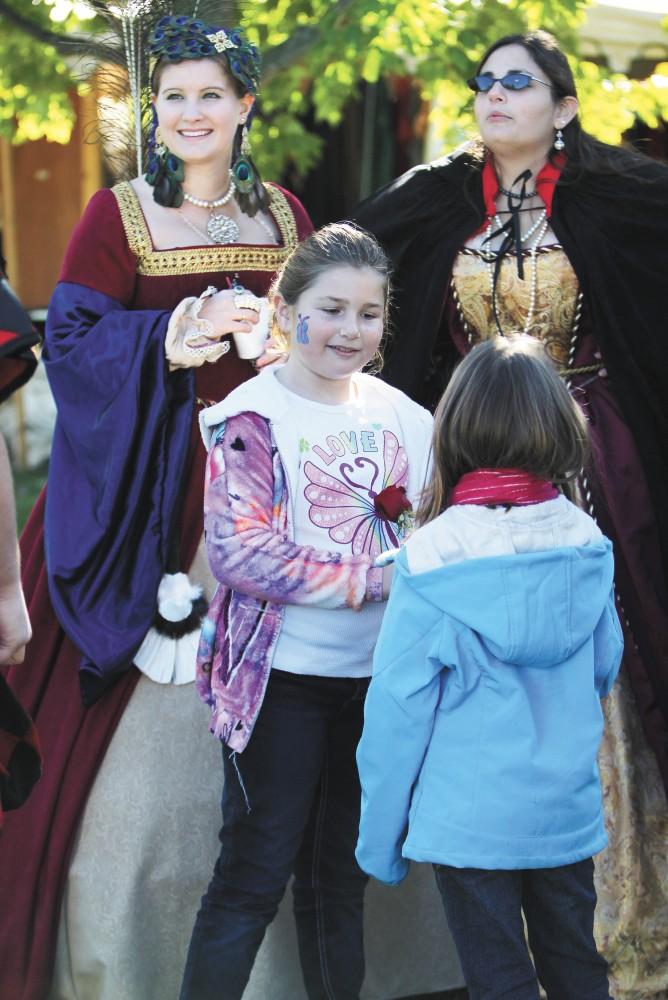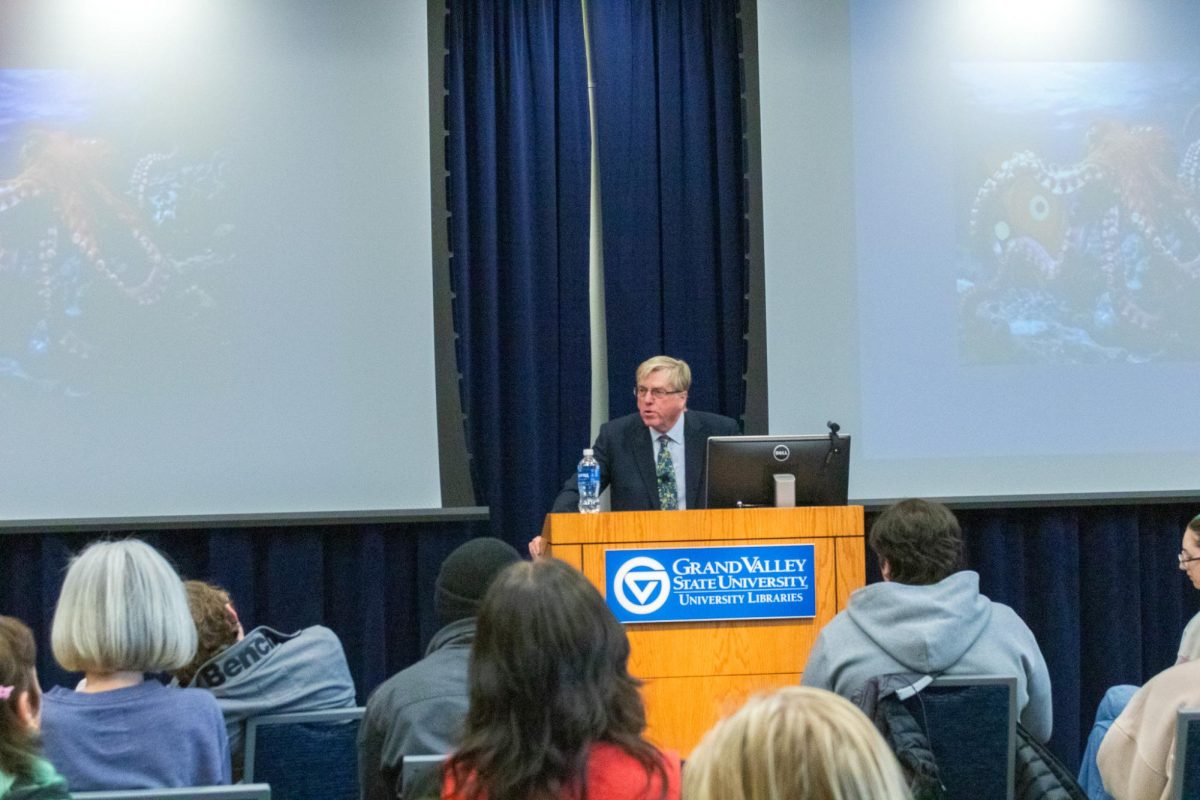Honoring the Bard

GVL / Archive (2012) Scenes from The Shakespeare Festival’s childrens summer camp.
Jul 13, 2015
Shakespeare isn’t always the easiest to understand, but members of the Grand Valley State University community are trying to show others how relevant and entertaining Shakespeare can be.
Through a children’s summer camp, a nostalgic 1960s theme, a traveling show and a student work competition, the Shakespeare Festival at GVSU will highlight the importance of the Bard.
Starting with the youngest generation, GVSU runs a day camp for children in first through sixth grade called Will Power to introduce them to Shakespeare and get them interested and comfortable with his work at a young age.
“The purpose of Will Power is to encourage campers’ creativity, to encourage them to explore working with other people, work on basic theater skills, and introduce them to how great Shakespeare is,” said Karen Libman, a theater professor who helps run Will Power. She said the camp helps children to understand Shakespeare at their own age level.
James Bell, the managing director of the Shakespeare Festival, has a daughter who has attended Will Power in the past and said he has seen how the program helped turn everyday playing into fun with Shakespeare.
“Part of what Will Power does is show kids that plays are just this sort of imaginative role-playing that kids always do,” Bell said. “It builds on that sense of imagination, but tying it through with stories. Even if the campers don’t go on to do more theater, they don’t have a fear of Shakespeare the way that a lot of kids do.”
Libman said she feels that this imaginative role-playing is what makes Shakespeare interesting. As director of the main stage show this year, Libman will put Shakespeare’s work on the stage and show audiences what makes the story so entertaining.
“Shakespeare was never meant to just be studied,” Libman said. “Shakespeare was an actor. These plays are meant to be played, that’s why they’re called plays and not studies. They’re meant to be put on stage.”
However, GVSU doesn’t stop showcasing Shakespeare with young students – the theater program brings Shakespeare to college students as well.
“The bulk of our audience is our student population and they are the heart of why we do this festival,” Bell said. “This is a chance to come and see student work and professional work as it combines into a tradition that’s been going on for hundreds of years and we hope students will come and take advantage of the opportunity.”
This year, the show performed as the main stage event at the festival will be “All’s Well That Ends Well.” Libman plans to set the production in the 1960s to help represent the themes of love and the generation gap.
“The play fits well into this time period and I’m personally having a really fun time with my research of music and costume design,” Libman said. “It’s a comedy. I want it to be fun and entertaining. I want people to laugh until they wet their pants.”
Emilee Miller, a junior who will be playing one of the lead roles in the main stage production said she’s excited to see the 1960s setting peak audience interest and make the show relatable and humorous.
Last year, Miller was in the Bard to Go show and said this was a great way to get people excited about Shakespeare. Bard to Go is a shorter, smaller production which tours to area high schools, performing a collection of Shakespeare pieces that play on a common theme.
“At first, kids come and they aren’t all that excited,” Miller said. “But by the end, they’re really involved and they’re asking you thousands of questions. It’s really cool to get to see them get so excited.”
Libman said that Shakespeare is something students can relate to and hopes that the festival will show students how entertaining and relatable Shakespeare can be.
“The reason why Shakespeare continues to be one of the most produced English language playwrights in the entire world is because he is always relevant,” Libman said. “Themes of love and family and problem and death are always going to be relevant.”






















